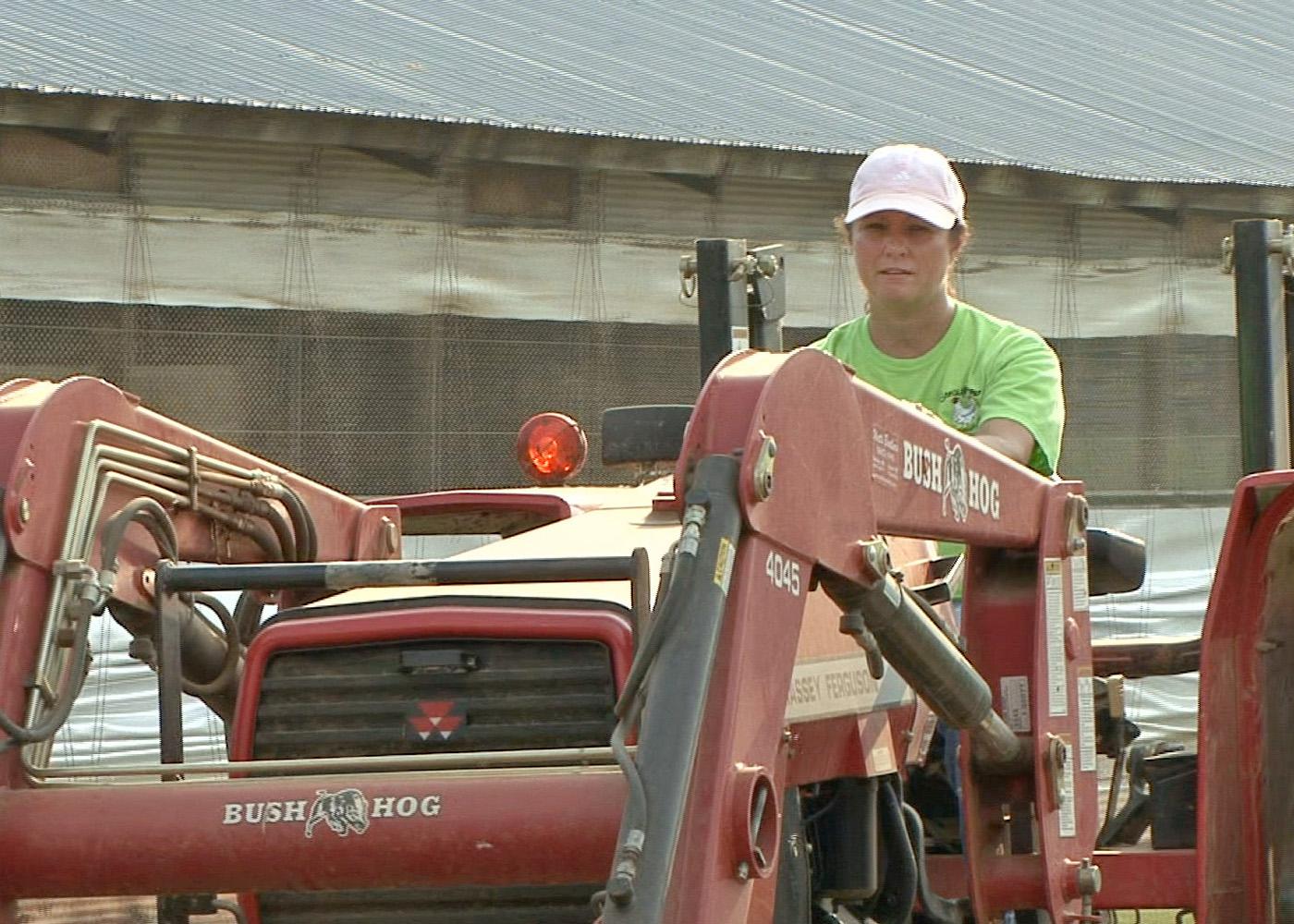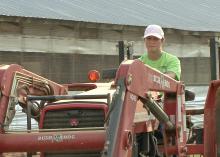Information Possibly Outdated
The information presented on this page was originally released on March 11, 2010. It may not be outdated, but please search our site for more current information. If you plan to quote or reference this information in a publication, please check with the Extension specialist or author before proceeding.
Program helps women farmers network, succeed
By Amy Taylor and Karen Templeton
MSU Ag Communications
MISSISSIPPI STATE – Farm women with a passion to succeed are increasing their business knowledge and skills through the Mississippi Women in Agriculture program.
The program is sponsored by Mississippi State University and the Southern Rural Development Center. Funding is provided by the Southern Region Risk Management Education Center and the U.S. Department of Agriculture’s National Institute of Food and Agriculture. It is specifically designed for farm women and is inspiring participants to step up to the forefront of agricultural operations.
“The program has meant a lot to me in the last couple of years. It has given me the self-confidence that I needed to take an idea and develop it into an agritourism business that we now have on our farm,” said Jan Holley, a row-crop farmer from Fulton. “Not only has it given me the self-confidence I needed, but it has given me a network of people I have been able to call upon.”
The program has a variety of opportunities for women who wish to gain business knowledge, increase productivity or even start a new business. In Mississippi, women play a significant role in farming operations, either as the primary operator or as the spouse of a farmer. Therefore, women’s involvement in the decision making and financial management of operations is critical.
Participants said the program has helped them maximize their roles in business management, which has been instrumental to their success.
The program provides opportunities for women to interact through educational seminars and an annual state conference.
“We cover information on human resource development so individuals can learn to work better with their employees and business associates,” said program coordinator Sonia Hancock. “We also include how to prepare for borrowing money from financial institutions, how to manage risks encountered in farming operations and help participants review their estate plans.”
Women involved in the program say it has helped them prepare for the expected, and most importantly, for the unexpected in the agriculture industry.
Sandra Berryhill, a farmer in Franklin County, knows better than most about how the unexpected can happen at any time. She turned to the program after her husband passed away three years ago. She wanted the skills to better manage her farm while also taking care of her seven children.
“The program taught us a lot about how to acquire loans, keep records and manage credit scores. We also learned about farm credit and estate planning,” Berryhill said. “Whether or not you have children, you need to think about farm succession, because you’ll need a plan to continue your farm.”
Berryhill said she now has a better understanding of why it is important to be a good steward of the land.
“When my husband got sick, he told me, ‘I don’t have anything to give you but this place. But if you take care of this place, it’ll take care of you,’” she said. “So that’s what we try to do. I tell our children we have to be good stewards of what we have and we need to work together to keep it going.”
Hancock said women farmers have a growing interest in computer programs and other technology for business management.
“Participants want computerized record-keeping programs, so we have offered instruction on the QuickBooks record-keeping program,” she said. “In addition to that, they want to learn to build and manage Web pages and blogs to promote their agricultural products.”
Poultry grower Delean Robertson of Pike County said using updated technology is useful in managing her poultry operation.
“It was what I needed to help our farm become more productive and to know what areas we can improve in,” Robertson said. “The technology helps me keep better track of inventory, what we’re doing, when we’re making improvements, when we’re having glitches.”
Robertson said she now feels more qualified to support her husband and provide her input on managing the farm. Being around women also creates more opportunities for networking and communicating new information.
“We tend to be more vocal than men, and we know what we are talking about with each other,” she said. “It just feels like you can get more information from other women.”
Robertson said the biggest reward has been becoming a knowledgeable businesswoman and producer.
“It’s really fulfilling to know that you can work with your hands to produce something, to make something grow, to have something that makes a difference,” Robertson said. “It is supplying a need in our economy and in our society, and it’s very rewarding.”
Robertson said her experience with MSWIA will be useful in the future as she expands her farm.
“If you’re a woman and you’re interested in agriculture, no matter the role you play in the field, be it a wife, a daughter, an owner or consultant, you should get involved,” Hancock said. “There is so much information to be gained, and networking with women who have the same interests is so important.”



